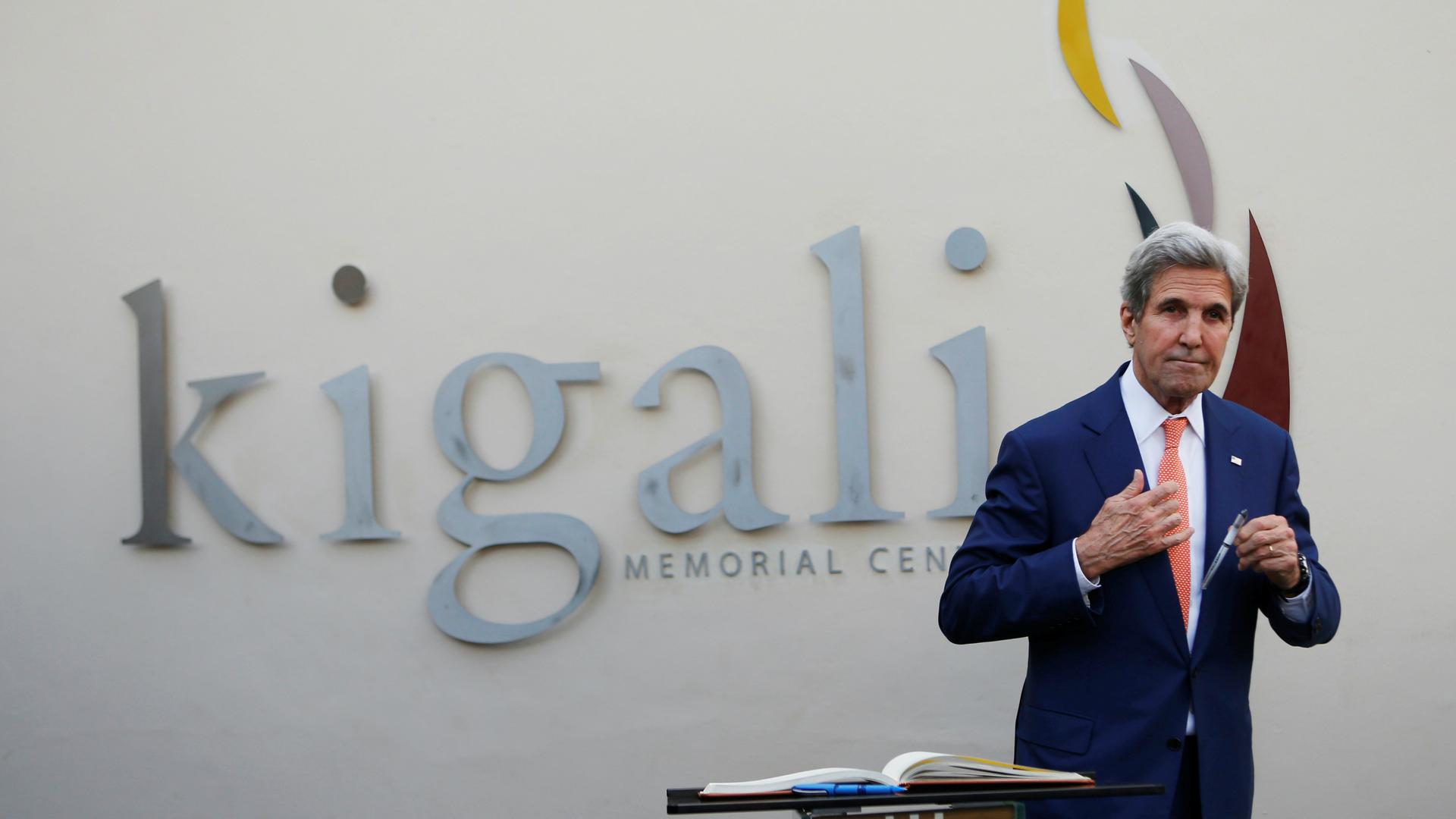International negotiators reach historic agreement to phase out powerful greenhouse gases
US Secretary of State John Kerry in Kigali, Rwanda, where a new agreement to phase out the manufacture of HFCs was recently completed.
International negotiators have reached a landmark agreement to phase out the manufacture and use of heat-trapping chemical coolants known as hydrofluorocarbons (HFCs).
In 1987, under the Montreal Protocol, nations agreed to replace chlorofluorocarbons (CFCs) with hydrofluorocarbons (HFCs), when scientists found that CFCs were destroying the ozone layer that shields Earth from cancer-causing ultraviolet radiation.
HFCs don’t harm ozone nearly to the degree as CFCs, but they are potent greenhouse gases — up to a thousand times stronger than carbon dioxide. So, in October, negotiators meeting in Kigali, Rwanda, agreed to end the industrial manufacture of HFCs, which do not occur naturally.
The Montreal Protocol has been hailed as one of the most successful international treaties in history. The new agreement has also generated great enthusiasm. US Secretary of State John Kerry called it “a monumental step forward. It represents multilateral patience and diplomacy and efforts over a long period of time,” he said.
Negotiators agreed to a three-track process designed to give some countries more time for the phase-out process than others. It was the best way to get all nations on board, says Mario Molina, a scientist who shared the 1995 Nobel Prize for chemistry for his work on CFCs.
“I think it works,” Molina says. “The reason perhaps is best explained by using India as the example. They claim they cannot [quickly] replace the HFCs they are using now, because that would not allow their many poor families to have air conditioning. The replacement is a bit more expensive and the new compounds are not yet available.”
The original Montreal Protocol created “multilateral funds” that helped developing nations enforce the ban on CFCs. Certain countries were granted a longer timetable and given resources by developed countries to help them achieve their goals, and it worked, Molina says. The Kigali agreement has the same mechanism.
In fact, Molina notes, the Montreal Protocol’s ban on CFCs, which are also greenhouse gases, likely did more to help mitigate climate change than the Kyoto Protocol or even the beginning stages of the Paris Agreement.
Phasing out HFCs now will greatly reduce future greenhouse gas emissions, Molina says. While HFCs currently contribute far fewer greenhouse gases than carbon dioxide and methane, as China, India and many other developing countries become wealthier they will use more and more air conditioning. Without the Kigali agreement, these countries would continue to use HFCs to build new air conditioning and refrigeration units. Eliminating HFCs could avoid about half the expected increase in global temperatures by midcentury.
As was the case with CFCs, chemical industries originally opposed the recent agreement, because they felt the science was not established. That is no longer true, Molina says.
“The science became very well-established and the chemical industry agreed to collaborate,” he explains. “They agreed with the Montreal Protocol’s phasing out CFCs and designed other compounds. Now, it's the same companies, and a few more, that are investigating and exploring another set of compounds that you can use for air conditioning, but are not global warming agents.”
Even now, Molina says, many air conditioners function well with other refrigerants. “We need perhaps better-designed air conditioners,” he adds. “The air conditioners themselves consume quite a bit of energy if they are not very well manufactured. So, that's another part of the story.”
This article is based on an interview that aired on PRI’s Living on Earth with Steve Curwood.
Every day, reporters and producers at The World are hard at work bringing you human-centered news from across the globe. But we can’t do it without you. We need your support to ensure we can continue this work for another year.
Make a gift today, and you’ll help us unlock a matching gift of $67,000!
